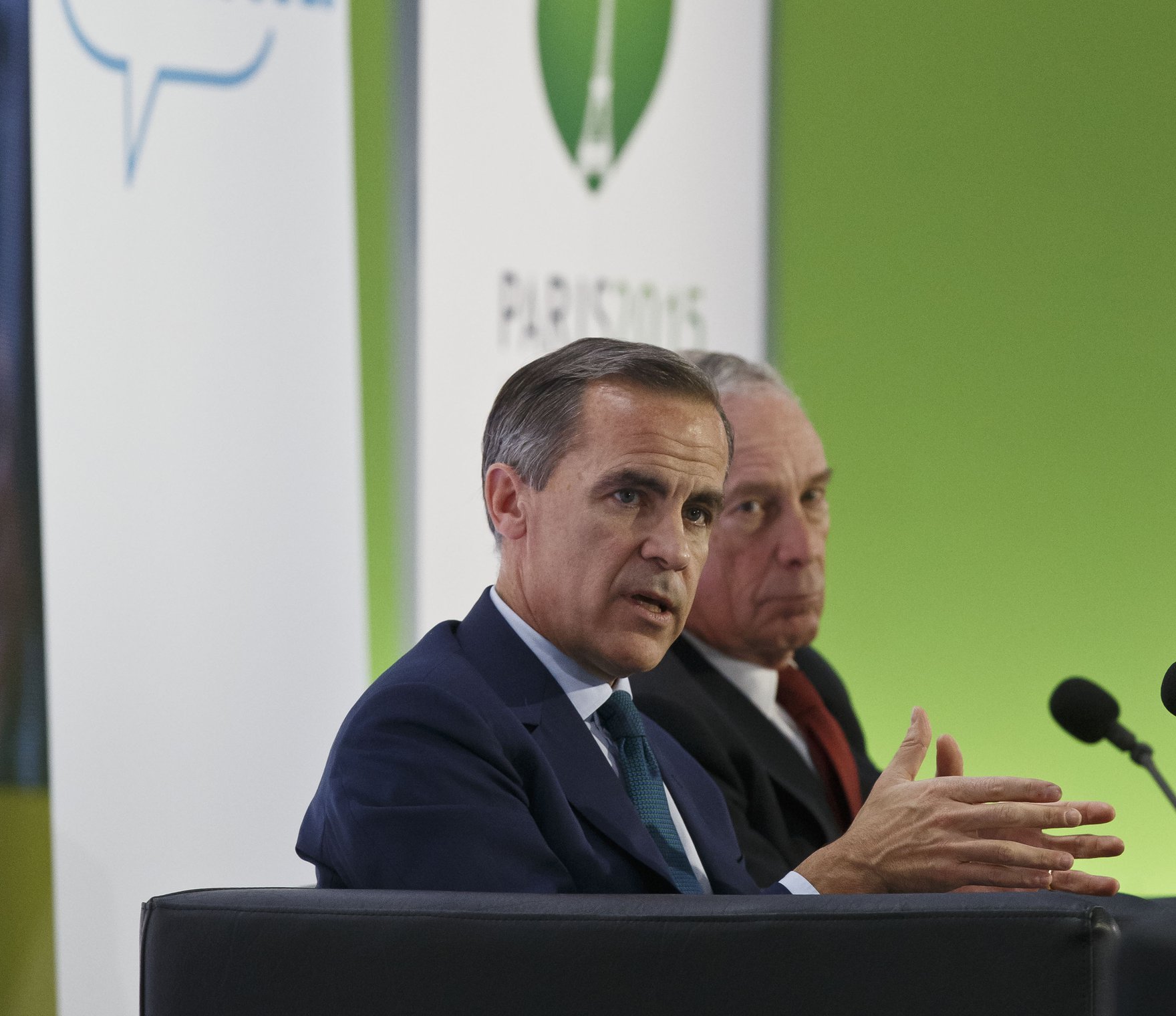There is a growing recognition that climate change has profound implications for the financial sector. Since the 1950s, the number of weather-related catastrophes, such as storms and floods, has increased sixfold, with total losses increasing fivefold since the 1980s to around US$170-billion today. The impacts of climate change are already felt by insurers who face a significant challenge to carry and manage risks as the frequency and magnitude of extreme weather events continue to rise. The implications of climate change, however, go far beyond the insurance sector to encompass the entire financial system. A 2015 study by the Economist Intelligence Unit estimated that a 6°C rise in temperatures could wipe US$43 trillion off the value of global financial markets. In addition to climate-related physical and litigation risks, financial institutions such as banks, asset managers and pension funds are exposed to any risks that arise in transition to a lower-carbon economy. Thus, any re-pricing of assets, such as fossil fuel reserves, can directly affect these institutions’ loans and investments, as well as their obligations to their fiduciaries, such as pensioners.
Although the financial community is aware of the financial risks arising from climate change, it has been lacking the most important tool to price and manage such risks — namely, information. While publicly traded companies are usually required to disclose material risks to investors, there is as yet no standardized framework to ensure that climate-related risks are disclosed in a reliable and comparable manner. For instance, only one-third of the top US companies produce comparable information on climate-related financial risks. Existing disclosure regimes vary in scope and lack sufficient comparability and consistency. Reporting channels also remain highly fragmented, ranging from responses to surveys and sustainability reports to disclosure on company websites.
This information gap led Mark Carney, chair of the Financial Stability Board (FSB), to establish a Task Force on Climate-related Financial Disclosures (TCFD) in 2015. The TCFD was charged with developing “voluntary, consistent climate-related financial risk disclosures” that would be useful to market participants such as lenders, issuers, and asset managers. After significant outreach and consultation, the task force released its final recommendations on June 29, 2017. The recommendations, which are structured around four thematic areas — governance, strategy, risk management, and metrics and targets — call for the disclosure of climate-related risks and opportunities that arise in the short, medium and long term. In addition, the task force asks organizations to test the resiliency of their business models under various plausible future scenarios, including a 2°C or lower scenario consistent with the commitments made under the Paris Agreement. Finally, the task force recommends that climate-related financial disclosure be integrated into mainstream financial filings. This is intended to streamline climate-related disclosure and ensure that the disclosed data is comparable and subject to adequate control and vetting similar to other material financial information.
In contrast to the Paris Agreement on climate change that represents a pact among states, the task force’s guidelines feature significant private sector leadership. This is reflected in both the task force’s membership — which spans pension funds, major issuers, accounting firms and rating agencies, and includes figures such as Michael Bloomberg, chair of the eponymous financial data provider, and Deborah Winshel, managing director at BlackRock, the investment firm — as well as the strong support that the recommendations have found among market participants. Earlier in May, more than 280 investors with US$17 trillion assets under management supported the task force’s work and called on governments to back and implement the recommendations. As the final recommendations were announced last week, they received backing from over 100 business leaders around the world. Indeed, as Carney has put it, the task force’s guidelines represent “a market solution for the market.”
The Group of Twenty (G20) meeting in Hamburg (July 7-8) presents an important opportunity for world leaders to support the task force’s initiative to improve climate disclosure practices. The launch of the task force launch was actually a response to the G20’s request for the FSB to “review how the financial sector can take account of climate-related issues”. It is now the G20’s turn to support, follow through and implement the task force’s recommendations.
Of course, G20 members will be mindful of the shifting international landscape, now that the United States is retreating from its climate commitments and exiting the Paris Agreement. At a recent meeting in Bologna of environment ministers from the Group of Seven countries, the final communiqué reaffirmed the commitments to tackle climate change and foster green finance, despite US resistance, setting the stage for G20 leaders to do the same in Hamburg.
Certainly, G20 members should also pursue the implementation of the task force’s recommendations in their national jurisdictions. This is particularly the case for Canada, which has been promoting its image as a world leader on the fight against climate change. In September 2017, Canada, China and European Union will convene a ministerial meeting to see how they can step into the breach and move forward with the Paris Accord. But, before acting as a global leader, Canada needs to get its own house in order.
A recent study by the Chartered Professional Accountants of Canada found the climate-related disclosure by the companies listed on the Toronto Stock Exchange lacked sufficient context to allow users to understand the implications of climate change for companies’ business models and financial results. The study also shows that the climate-related disclosures are based on inconsistent methodologies and vary significantly in nature and scope across different sectors. These findings confirm that climate change is not yet perceived as a material risk that needs to be disclosed under existing securities laws. A similar picture exists in other parts of the financial system. Pension funds, for example, have not received any legislative or regulatory recognition of climate change and the need to incorporate it into institutional governance and risk management. Pension funds themselves have been struggling to obtain meaningful information on climate change from the companies that they invest in. Similarly, with respect to banking, climate change-related risks have not been incorporated into the broader prudential framework that seeks to ensure the safety and soundness of the banking system.
The task force’s recommendations provide Canadian policy makers and private actors with the essential tool kit for integrating climate change into existing risk management and disclosure practices. By backing one common set of disclosure standards, they can help build the necessary momentum for a better understanding of the risks that the economy faces in transitioning to a low-carbon future, as well as leading the green finance agenda at the global level.



